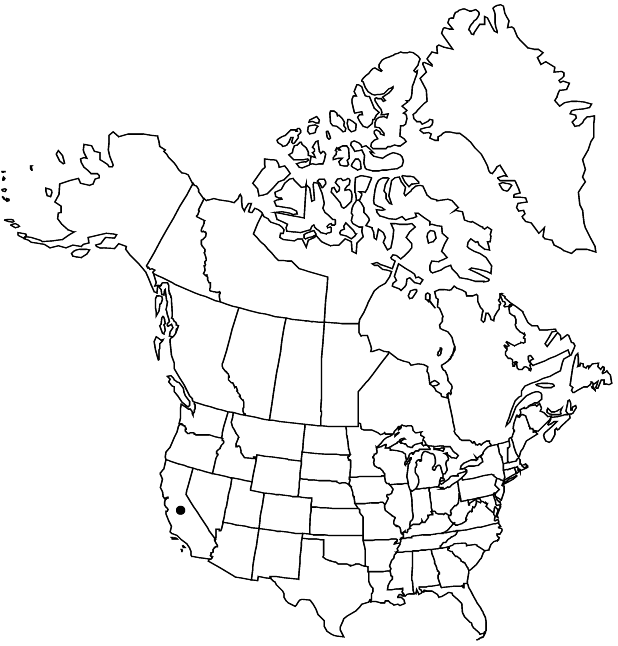Ribes speciosum
Fl. Amer. Sept. 2: 731. 1813 ,.
Plants mostly evergreen, 0.5–3 m. Stems spreading, glabrous; spines at nodes 3, 10–20 mm; prickles on internodes dense. Leaves: petiole 0.5–2 cm, stipitate-glandular; blade roundish, usually unlobed, very shallowly cleft, 1–3.5 cm, base cuneate, surfaces glabrous, lobes, if present, with straight sides, margins with few, shallow teeth, apex rounded. Inflorescences pendent, solitary flowers or 2–4-flowered racemes, 2–7 cm (longer than leaves), axis pubescent, stipitate-glandular, flowers evenly spaced. Pedicels not jointed, 8–12 mm, bristly and glandular; bracts broadly ovate, 4–8 mm, pubescent and stipitate-glandular. Flowers: hypanthium red, very broadly conic, wider than long, 2–3 mm, glandular; sepals 4, connivent into tube, erect, red, strap-shaped, 6–10 mm; petals 4, connivent, erect, red, oblong, margins curled inward, 6–10 mm; nectary disc not prominent; stamens 2–4 times as long as petals; filaments linear, 12–40 mm, glabrous; anthers purple or red, oval, slightly sagittate, 2 mm, apex rounded; ovary densely stipitate-glandular; styles connate ± completely, 15–45 mm, glabrous. Berries palatability not known, orangish red, ovoid, 10–12 mm, densely glandular-bristly.
Phenology: Flowering Nov–Jun.
Habitat: Coastal-sage scrub, chaparral
Elevation: 0-600 m
Distribution

Calif., Mexico (Baja California).
Discussion
Ribes speciosum occurs in the South Coast Ranges from Monterey County through San Diego into northern Baja California.
Selected References
None.